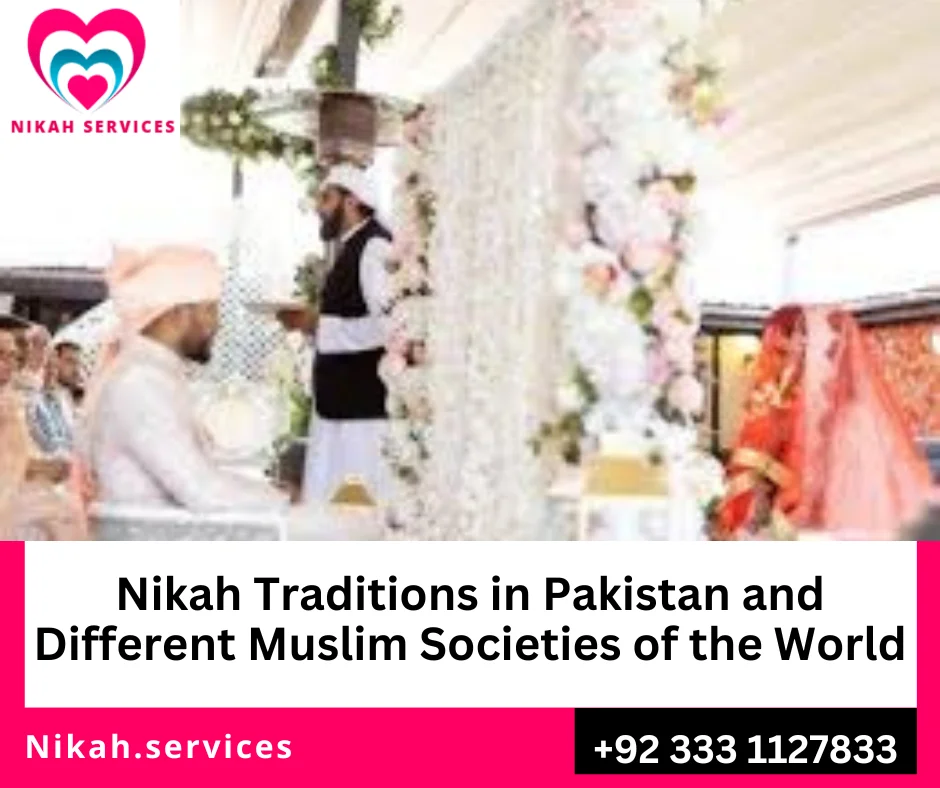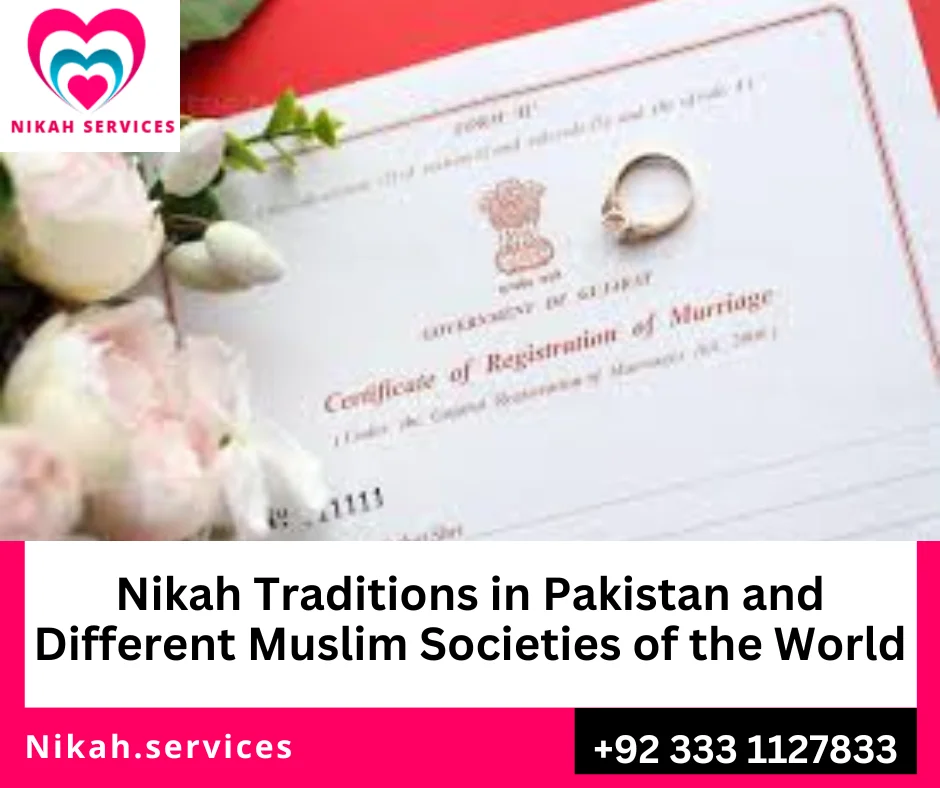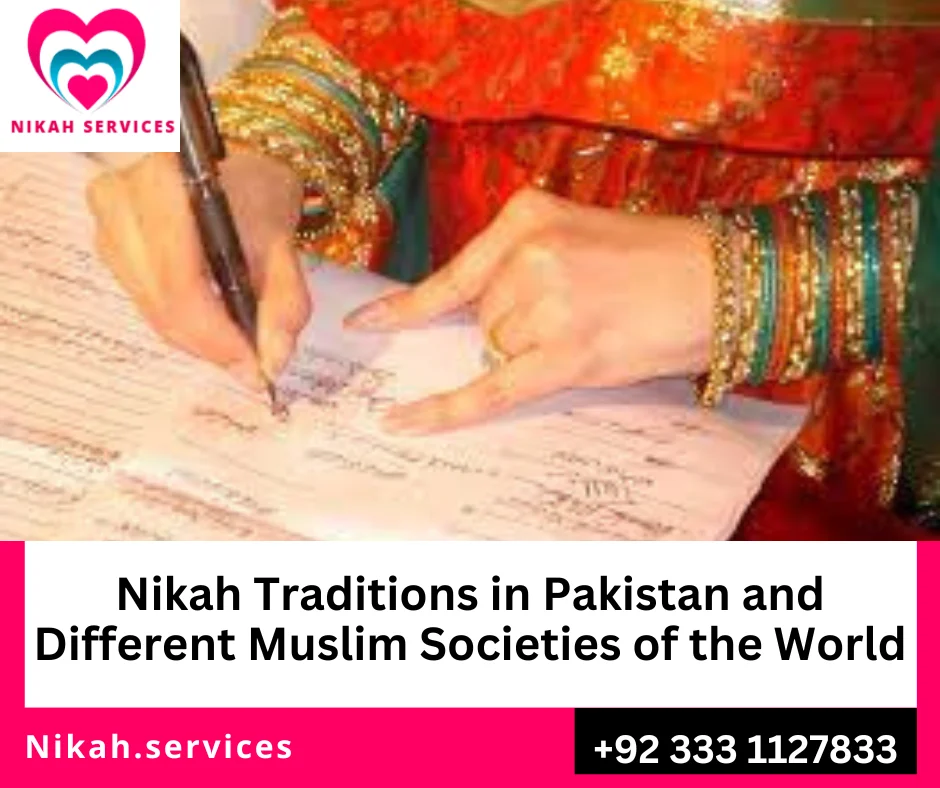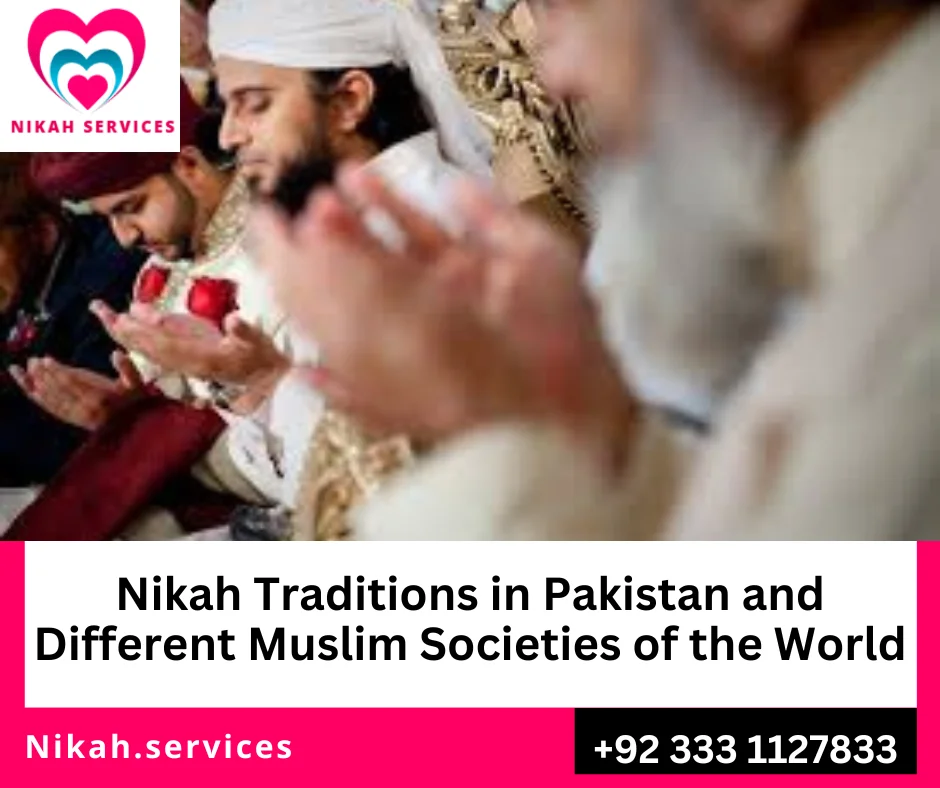Nikah Traditions in Pakistan and Different Muslim Societies of the World
Nikah in Islam – An Introduction
Nikah, the sacred Islamic marriage contract, holds immense spiritual and cultural significance in the lives of Muslims across the world. It is more than just a legal agreement; Nikah establishes a union rooted in mutual love, respect, and shared responsibility. While the core principles of Nikah remain the same in all Muslim societies, the customs and traditions associated with it vary widely, reflecting the diverse cultures and traditions of the Muslim Ummah. This article explores the Nikah customs in Pakistan and compares them with the practices in other Muslim societies worldwide.
Nikah Traditions in Pakistan
In Pakistan, Nikah is a deeply respected ceremony that combines Islamic principles with the country’s rich cultural heritage. It is not only a religious obligation but also a social celebration that brings families and communities together. Here are some distinctive aspects of Nikah traditions in Pakistan:
1. Signing of the Nikahnama
The signing of the Nikahnama, the official Islamic marriage contract, is the central part of the Nikah ceremony in Pakistan. The Nikahnama includes details such as the dower (Mahr), the consent of both parties and any additional terms agreed upon by the bride and groom. It is signed in the presence of a Nikah Khawan (Qazi) and two witnesses, ensuring that the marriage complies with Islamic guidelines and is legally recognized.

2. Recitation of Quranic Verses Before Nikah
The Nikah ceremony begins with the recitation of selected verses from the Holy Quran, highlighting the spiritual importance of marriage in Islam. The Qazi officiates the ceremony, explaining the significance of Nikah and seeking the consent of both the bride and groom.
3. Declaration of Consent (Ijab-o-Qabool) For Nikah
The bride and groom must explicitly declare their consent to the marriage in front of witnesses. This verbal agreement, known as Ijab-o-Qabool, is a critical requirement of Nikah in Islam and signifies the mutual willingness of the couple to enter into the marital relationship.
4. Payment of Mahr (Dower) During or After Nikah
The groom provides the agreed-upon Mahr (dower) to the bride as part of the Nikah. Mahr is an essential aspect of the marriage contract and represents the groom’s responsibility and commitment to his wife. It can be monetary or in the form of property or other assets, as decided by the couple and their families.
5. Cultural Celebrations of Nikah
Although the Nikah itself is a religious event, it is often accompanied by various cultural customs and festivities in Pakistan. Pre-wedding events like the Mehndi and post-Nikah celebrations such as the Walima (reception) showcase the country’s vibrant traditions. These events may include music, dance, and elaborate feasts, reflecting the joyous spirit of marriage in Pakistani culture.

Nikah Traditions in the Arab World
In Arab countries, the Nikah ceremony follows similar Islamic principles but is influenced by the region’s unique cultural traditions.
1. Simplicity in Nikah Ceremonies
In many Arab societies, Nikah ceremonies are simple and focus on the religious aspects of marriage. The contract is signed in the presence of a Qazi or Imam, and Quranic verses are recited to bless the union. While simplicity is emphasized, some families may host lavish celebrations to honor the occasion.
2. Mahr in Arab Nikah Traditions
The concept of Mahr is integral to Nikah in Arab societies, just as it is in Pakistan. However, the value of the Mahr can vary significantly depending on cultural and social norms. In some cases, the Mahr may include gold, property, or a substantial monetary gift.
3. Walima as a Grand Event after Nikah
The Walima, or marriage banquet, is a significant part of Arab Nikah traditions. It is hosted by the groom’s family and is often a grand event with large gatherings of family and friends. Traditional Arab cuisine and music are integral to the celebrations, reflecting the hospitality and cultural richness of the region.
Nikah Traditions in South Asia Outside Pakistan
The Nikah traditions in neighboring countries like India and Bangladesh are similar to those in Pakistan, with slight variations influenced by local customs and cultures.
1. Nikah in India
In India, the Nikah ceremony follows the same Islamic principles but is often intertwined with cultural practices unique to Indian Muslims. The bride and groom’s attire is usually traditional, with the bride wearing an elaborate outfit such as a Sharara or Lehenga, and the groom donning a Sherwani. The ceremony is often followed by a grand reception, showcasing the vibrant and colorful traditions of Indian weddings.
2. Nikah in Bangladesh
In Bangladesh, the Nikah ceremony is a blend of Islamic rituals and Bengali customs. The signing of the Nikahnama, payment of Mahr, and recitation of Quranic verses are central to the ceremony. However, the celebrations often include traditional Bengali music and cuisine, reflecting the cultural identity of Bangladeshi Muslims.

Nikah Traditions in Southeast Asia
In countries like Malaysia and Indonesia, Nikah ceremonies are deeply rooted in Islamic teachings but are also influenced by local traditions.
1. Nikah in Malaysia
In Malaysia, the Nikah ceremony is a formal yet joyous occasion. It is often conducted in a mosque or the bride’s home, with the presence of an Imam who officiates the marriage. The couple exchanges vows and the groom presents the Mahr to the bride. Traditional Malay customs, such as the exchange of gifts between families, add a unique cultural dimension to the ceremony.
2. Nikah in Indonesia
Indonesia, the world’s largest Muslim-majority country, has diverse Nikah traditions influenced by its many ethnic groups. The Nikah ceremony typically involves the signing of the marriage contract, the exchange of vows, and prayers for the couple’s happiness. Traditional music, dance, and attire often accompany the celebrations, showcasing Indonesia’s rich cultural heritage.


Nikah Traditions in African Muslim Societies
In African Muslim societies, Nikah customs vary widely due to the continent’s diverse cultures and ethnicities. However, the core Islamic principles remain consistent.
1. Nikah in North Africa
In North African countries like Egypt and Morocco, Nikah ceremonies are elaborate events that often span several days. The Nikah contract is signed in the presence of a Qazi, and Quranic recitations bless the union. Traditional music, dance, and cuisine play a significant role in the celebrations.
2. Nikah in Sub-Saharan Africa
In Sub-Saharan African Muslim communities, Nikah ceremonies often incorporate local customs and traditions. The payment of Mahr, recitation of Quranic verses, and the signing of the marriage contract are central to the ceremony. Festivities may include vibrant music, dance, and traditional attire, reflecting the region’s cultural diversity.
Nikah – Uniting Muslims Worldwide in Marriage Bond
Nikah is a sacred institution in Islam that transcends borders and cultures, uniting Muslims worldwide in the common bond of marriage. While the core principles of Nikah remain rooted in Islamic teachings, the customs and traditions associated with it vary widely across different Muslim societies. In Pakistan, Nikah ceremonies combine Islamic rituals with vibrant cultural celebrations, while in other parts of the world, unique local customs add distinct flavors to the marriage process. Regardless of these cultural variations, the essence of Nikah lies in its spiritual and social significance, as it establishes a bond of love, mercy, and mutual responsibility between spouses, contributing to the well-being of individuals and society at large.

 in Pakistan
in Pakistan